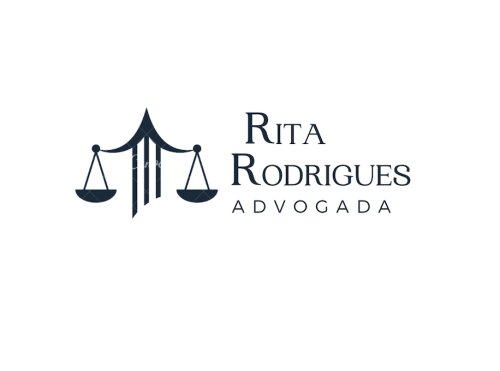Best Admiralty & Maritime Lawyers in Porto
Share your needs with us, get contacted by law firms.
Free. Takes 2 min.
List of the best lawyers in Porto, Portugal
About Admiralty & Maritime Law in Porto, Portugal
Admiralty & Maritime law governs legal matters related to navigation and commerce on seas, rivers, and other navigable waters. In Porto, Portugal, this area of law plays a significant role due to the city’s historical and ongoing importance as a port and shipping hub. Admiralty & Maritime law in Porto encompasses regulations about vessels, shipping contracts, cargo transportation, marine insurance, environmental regulation, and dispute resolution at sea or in port waters. The legal framework is influenced by both national Portuguese laws and international conventions to which Portugal is a signatory.
Why You May Need a Lawyer
You may require an Admiralty & Maritime lawyer in Porto for a variety of reasons. Common situations include:
- Disputes over ship ownership, registration, or flagging
- Contract disagreements involving carriage of goods or passengers by sea
- Claims relating to maritime accidents or collisions
- Environmental matters such as oil spills or pollution from ships
- Salvage and wreck removal issues
- Seafarers’ claims for injuries or unpaid wages
- Piracy, smuggling, or customs violations
- Marine insurance claims
- Detention and arrest of ships for unpaid debts or claims
- Port authority regulations and compliance matters
Legal assistance ensures proper application of complicated maritime regulations and helps protect your interests in disputes or negotiations.
Local Laws Overview
Admiralty & Maritime matters in Porto are mainly governed by the Portuguese Commercial Code, the Maritime Code, and several EU regulations. Portuguese law is harmonized with international conventions such as the International Convention for the Safety of Life at Sea (SOLAS), the International Convention for the Prevention of Pollution from Ships (MARPOL), and the United Nations Convention on the Law of the Sea (UNCLOS). The local Port Authority for Porto, known as Administração dos Portos do Douro, Leixões e Viana do Castelo (APDL), sets operational regulations within the port. Key legal topics include vessel registration, crewing requirements, contracts of carriage, arrest and sale of vessels, environmental liabilities, and dispute resolution procedures, often handled by specialized maritime courts or arbitration panels.
Frequently Asked Questions
What is Admiralty & Maritime law?
Admiralty & Maritime law is the branch of law that regulates navigation, shipping, marine commerce, seafarers’ rights, and related marine activities on international and internal waters.
Does Portugal recognize international maritime conventions?
Yes, Portugal is a signatory to numerous international maritime conventions and incorporates these into its national legislation, ensuring compliance with global maritime standards.
What steps can I take if my cargo is damaged during shipping in Porto?
You should notify the shipping company immediately, document the damage thoroughly, and seek legal advice. A maritime lawyer can assist in claims against carriers or underwriters.
Can vessels be arrested in Porto for unpaid debts?
Yes, under Portuguese law, vessels can be arrested as security for maritime claims. The process must follow specific legal protocols often overseen by the maritime court.
What are the environmental regulations for ships calling at Porto?
Ships must comply with local, national, and international regulations concerning ballast water management, emissions, sewage disposal, and prevention of oil spills. Non-compliance can result in hefty fines or detention.
How are maritime disputes resolved in Porto?
Maritime disputes in Porto can be resolved through litigation in specialized admiralty courts or by arbitration, depending on contract terms and parties’ preferences.
Who regulates the ports in Porto?
The Administração dos Portos do Douro, Leixões e Viana do Castelo (APDL) is the government body responsible for regulating and managing Porto’s main ports.
Do crew members have specific legal rights under Portuguese law?
Yes, crew members’ rights regarding wages, safety, working conditions, and repatriation are protected by Portuguese law and international conventions.
What insurance is mandatory for ship operators in Porto?
Ship operators generally require mandatory insurance for vessel hull, liability, cargo, and environmental risk coverages. Requirements depend on vessel type and operation.
Can foreign companies own and register ships in Portugal?
Yes, Portugal allows foreign entities to own and register ships under the Portuguese flag, provided certain conditions and documentation are met.
Additional Resources
- Administração dos Portos do Douro, Leixões e Viana do Castelo (APDL) - The local port authority in Porto that oversees port operations and regulations.
- Direção-Geral de Recursos Naturais, Segurança e Serviços Marítimos (DGRM) - The national maritime authority handling vessel registration, inspections, and maritime safety.
- Portuguese Bar Association (Ordem dos Advogados) - Provides directories of licensed maritime lawyers and legal resources.
- DGS Maritime Affairs Directorate - Offers updates on Portugal’s compliance with international maritime conventions.
- International Maritime Organization (IMO) - For international rules that affect Portuguese maritime law and practice.
Next Steps
If you need legal assistance in Admiralty & Maritime matters in Porto:
- Gather all relevant documents such as contracts, shipping records, insurance policies, and correspondence.
- Contact a qualified maritime lawyer, preferably one with experience in cases similar to yours or who is locally based in Porto.
- Request an initial consultation to explain your situation and assess your legal options.
- Cooperate fully with your legal representative, provide detailed information, and ask questions to understand your rights and obligations.
- If immediate action is required (such as in cargo or vessel arrest cases), seek urgent legal advice to avoid loss of rights or further problems.
Taking these steps will help ensure your interests are protected and improve your chances of resolving issues efficiently within the complex field of Admiralty & Maritime law in Porto, Portugal.
Lawzana helps you find the best lawyers and law firms in Porto through a curated and pre-screened list of qualified legal professionals. Our platform offers rankings and detailed profiles of attorneys and law firms, allowing you to compare based on practice areas, including Admiralty & Maritime, experience, and client feedback.
Each profile includes a description of the firm's areas of practice, client reviews, team members and partners, year of establishment, spoken languages, office locations, contact information, social media presence, and any published articles or resources. Most firms on our platform speak English and are experienced in both local and international legal matters.
Get a quote from top-rated law firms in Porto, Portugal — quickly, securely, and without unnecessary hassle.
Disclaimer:
The information provided on this page is for general informational purposes only and does not constitute legal advice. While we strive to ensure the accuracy and relevance of the content, legal information may change over time, and interpretations of the law can vary. You should always consult with a qualified legal professional for advice specific to your situation.
We disclaim all liability for actions taken or not taken based on the content of this page. If you believe any information is incorrect or outdated, please contact us, and we will review and update it where appropriate.
















